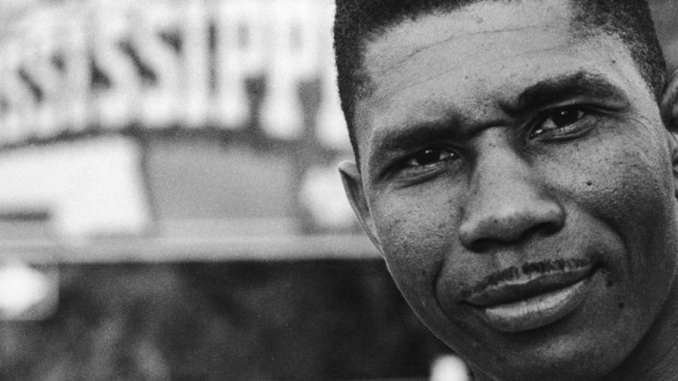
By Stacy M. Brown,
NNPA Newswire Senior Correspondent,
Mississippi’s congressional delegation has called on President Joe Biden to posthumously award civil rights icon Medgar Wiley Evers with the Presidential Medal of Freedom. Senators Roger Wicker and Cindy Hyde-Smith, as well as Representatives Bennie Thompson, Trent Kelly, Michael Guest and Mike Ezell, penned a heartfelt letter to President Biden, imploring him to bestow the honor upon Evers, whose unwavering dedication to equality, voting rights, and social justice culminated in his tragic assassination outside his Jackson, Mississippi, home, June 12, 1963.
The Presidential Medal of Freedom is the highest civilian honor in the United States, recognizing those who have made an indelible mark through “an especially meritorious contribution to the security or national interests of the United States, world peace, cultural, or other significant public or private endeavors.” The President personally chooses the recipients of the award.
Throughout his brief life, Evers stood as a beacon of courage against the entrenched racism of the segregated South. He waged a tireless battle against the oppressive Jim Crow laws, championed the desegregation of education and boldly probed into the horrific Emmett Till lynching.
His pivotal role as the inaugural field officer for the NAACP in Mississippi allowed him to forge new local chapters, organize crucial voter registration drives, and lead historic protests for desegregation in public schools, parks, and the iconic Mississippi Gold Coast beaches.
Evers’ journey as a civil rights activist began with a harrowing encounter when he and five friends were forcibly turned away from a local election at gunpoint. The intensely personal experience, coupled with his service in the Battle of Normandy during World War II, drove Evers to confront the painful reality that even defending his nation did not shield him from the scourge of racism or guarantee him equal rights.
According to his official NAACP bio, following his studies at the historically Black Alcorn State University and his tenure selling life insurance in Mound Bayou, a predominantly Black community, Evers assumed leadership of the Regional Council of Negro Leadership (RCNL). Under his guidance, the RCNL launched a successful boycott of gas stations that denied restroom access to Black patrons, distributing bumper stickers emblazoned with the rallying cry, “Don’t Buy Gas Where You Can’t Use the Restroom.” The annual conferences held between 1952 and 1954 in Mound Bayou drew tens of thousands, underscoring Evers’ magnetic ability to inspire collective action.
The NAACP said Evers’ relentless pursuit of desegregation at the University of Mississippi Law School culminated in the landmark 1962 enrollment of James Meredith, eight years after he initiated that battle. On that fateful June 12, 1963 evening, Evers, bearing NAACP T-shirts emblazoned with the defiant slogan “Jim Crow Must Go,” was shot in the back upon entering his driveway. He succumbed to his wounds at a local hospital, a martyr for the cause of civil rights. His assassination, occurring mere hours after President John F. Kennedy’s historic televised address in support of civil rights, sent shockwaves through the nation.
Though Byron De La Beckwith, a member of the Ku Klux Klan, was arrested for Evers’ murder, he remained free after all-white juries twice failed to reach a verdict on his guilt. It would take three decades for justice to prevail, as De La Beckwith was finally convicted.
Evers was buried at Arlington National Cemetery, honored with full military rites and in the presence of over 3,000 mourners.
Evers’ legacy endures, echoed in the music of luminaries like Bob Dylan and Phil Ochs, and immortalized in the 1996 film “The Ghosts of Mississippi.” His family, including his wife, Myrlie Evers-Williams, continued to carry forth his torch.

Be the first to comment